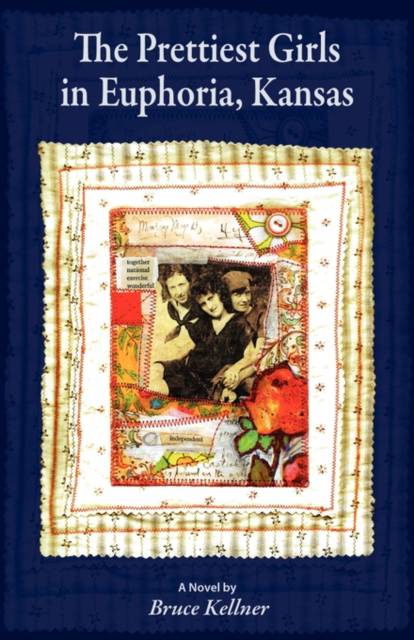
- Retrait gratuit dans votre magasin Club
- 7.000.000 titres dans notre catalogue
- Payer en toute sécurité
- Toujours un magasin près de chez vous
- Retrait gratuit dans votre magasin Club
- 7.000.0000 titres dans notre catalogue
- Payer en toute sécurité
- Toujours un magasin près de chez vous
Description
Bruce Kellner's New Novel Examines the Troubling Pull of the Past: In "The Prettiest Girls in Euphoria, Kansas," literary biographer Bruce Kellner probes the fragmented nature of memory in a narrative that does not tell time by clocks or remember it by calendars. On a midwestern farm in the last century, a boy is forced to come of age in a colorful family of dysfunctional women, scarred by the unfulfilled dreams of his alcoholic mother, his strange spinster aunts, his malevolent nieces, and especially "the prettiest girls in Euphoria, Kansas," his five unforgettable sisters. The hapless lives of frigid Emily, beautiful Louella, the competitive but dim twins Verda and Opal, and baleful Alice (also the lives of the losers they marry or don't) range from hilarious to heartbreaking. Inevitably, these women - equally appealing and appalling - dominate their much younger "Brother," an identity he can only escape by fleeing from them. Now, as a man in late middle-age, Brother must return to the town he escaped long before, in an attempt to cope with the shards of memory that have always haunted him. The impact of the past on the present dominates Kellner's novel, through the erratic, mysterious power of memory, simultaneously faithful and unreliable. "Memory is our sixth sense," Brother observes. "Is the fading of the other ones as we grow older the reason why memories of the past grow stronger?" As he sifts through his family's legends, his sisters' overwhelming personalities, and the enduring influence of his father, Brother's fragmented memories are woven with bitter nostalgia and earthy humor into an indelible account of a family's emotional history. By turns whimsical, bawdy, poignant, and heartfelt, "The Prettiest Girls in Euphoria, Kansas" examines not only the empowering sense of the past on the present but the indestructible threads that bind families together.
Spécifications
Parties prenantes
- Auteur(s) :
- Editeur:
Contenu
- Nombre de pages :
- 248
- Langue:
- Anglais
Caractéristiques
- EAN:
- 9781595691781
- Date de parution :
- 01-11-10
- Format:
- Livre broché
- Format numérique:
- Trade paperback (VS)
- Dimensions :
- 140 mm x 216 mm
- Poids :
- 317 g

Les avis
Nous publions uniquement les avis qui respectent les conditions requises. Consultez nos conditions pour les avis.






